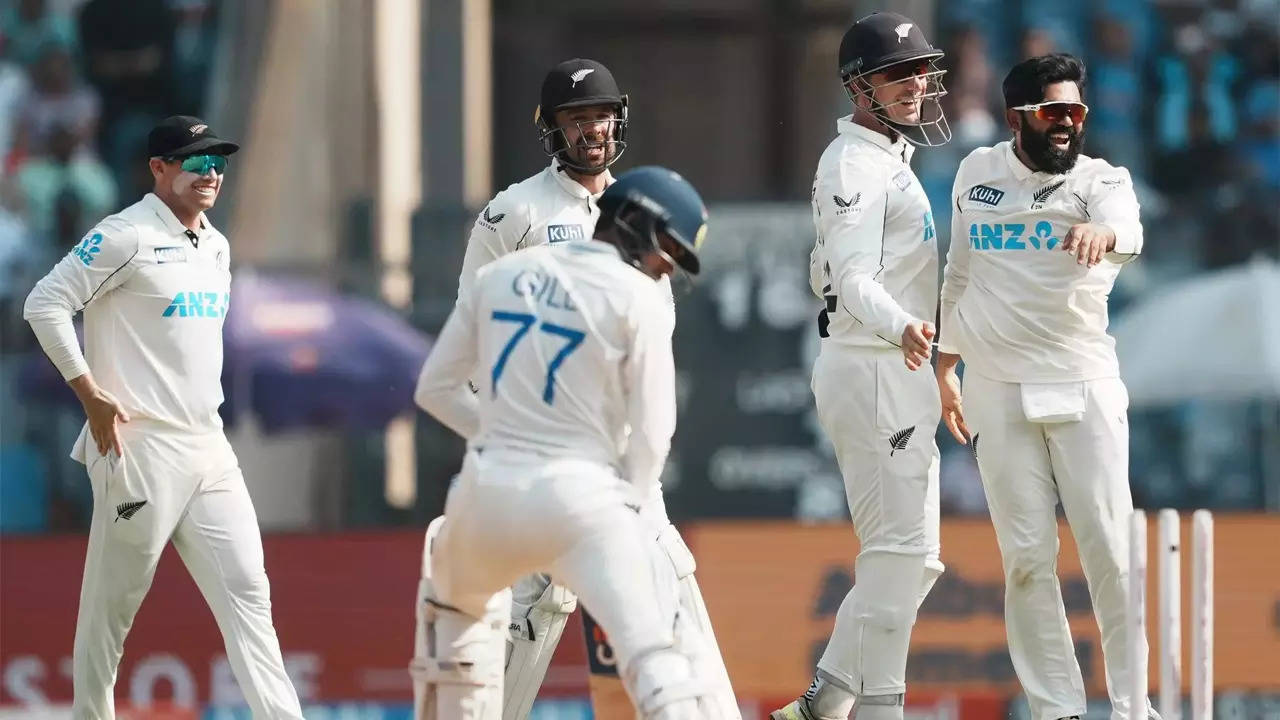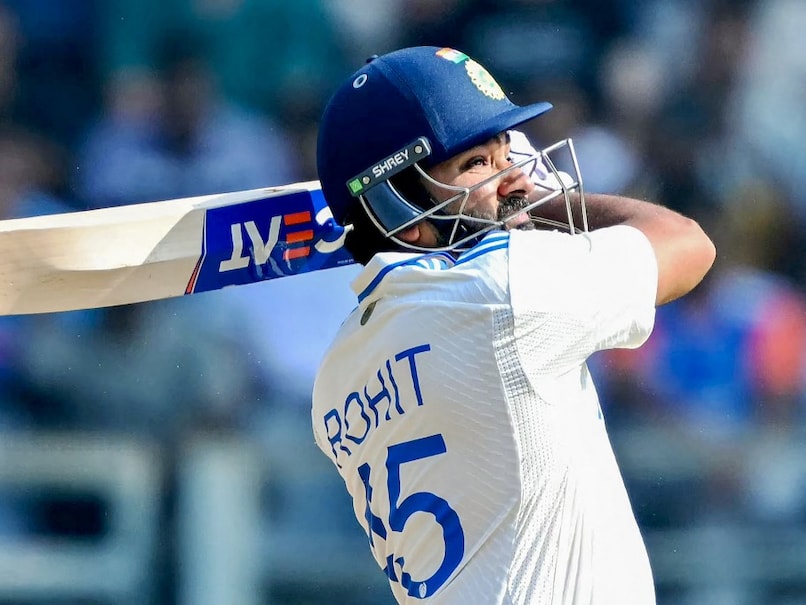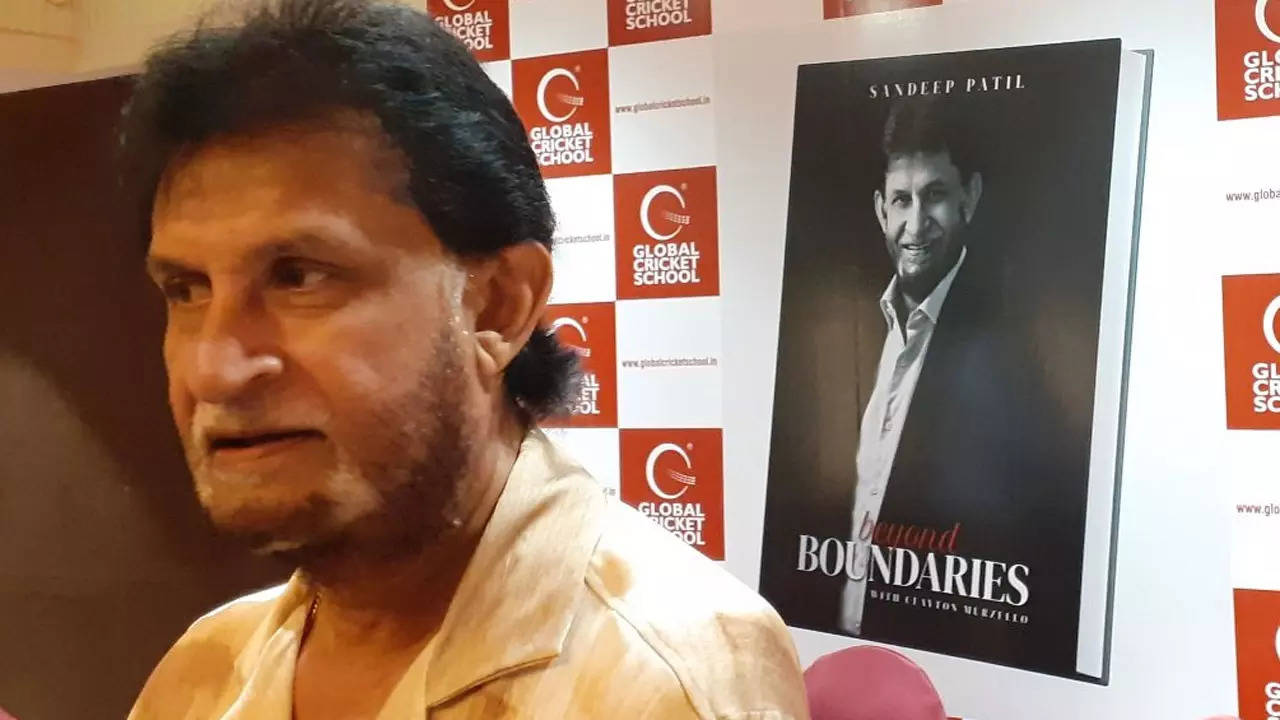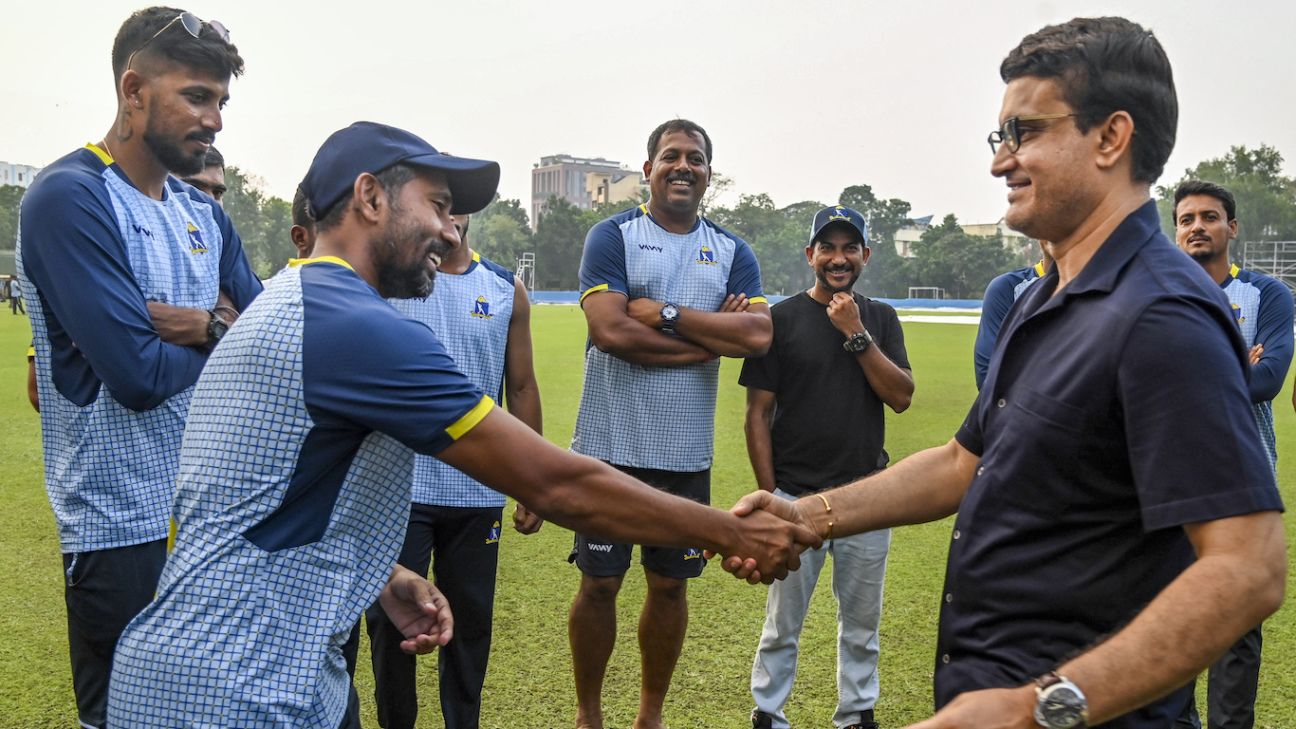India’s batting woes against spin have been laid bare in the recently concluded Test series against New Zealand. The hosts suffered humiliating defeats in all three matches, with their batsmen failing to cope with the turning tracks.
In the first Test in Bengaluru, India’s decision to bat first in overcast conditions backfired, leading to a disastrous 46 all out in the first innings. However, the batting failures in Pune and Mumbai were even more alarming, as the hosts surrendered meekly against spin.
Ajaz Patel’s six-wicket spell in Mumbai scripted a 25-run victory for New Zealand, despite India needing just 147 to win. Former India opener Aakash Chopra believes this defeat is an admission that Indian batsmen can no longer play spin effectively.
“On flat tracks, we can play spin, but everybody can on a flat track. The only difference is that we play spin better than other teams on flat tracks and bowl better as well because our spinners have quality,” Chopra said. “But if the track offers spin ever so slightly, then whether it is the Pune or the Wankhede in Mumbai (we fall short).”
Many Indian batters resorted to playing the sweep and reverse-sweep to counter spin, but Chopra believes this is a risky strategy that requires extensive practice. “Neither we have confidence in spin, nor we have control on our shots. We are trying to find a shot when it’s not there, trying sweeps, practicing it before the start of play every morning. But it’s like learning a new language, my friend. If you don’t know a language, it takes a lot of time to learn it,” he said.
Virat Kohli and Rohit Sharma, India’s batting stalwarts, failed to deliver in all three Tests, extending their poor run of form in the home season. Kohli scored just 93 runs in three innings, while Rohit aggregated 91. Rishabh Pant was the top-scorer of the series with 261 runs, but his efforts were not enough to prevent India’s humiliating defeat.
Chopra believes the lack of domestic cricket is a major factor behind India’s batting woes against spin. “When we focus more on white-ball cricket, then that habit of playing on turning pitches vanishes. We don’t even remember when our main players last appeared in a first-class domestic match. So where are you going to practice?” he said.
Rohit last played a domestic first-class match in 2016, while Kohli’s last domestic appearance came in 2012. “You play international cricket, which is okay; but international cricket is played on good tracks 9 out of 10 times. When it happens on bad tracks, then you get caught. It’s happening again and again,” Chopra analyzed.
India’s next assignment is a limited-overs tour of South Africa, followed by a five-Test series against Australia for the Border Gavaskar Trophy. Having conceded the top spot on the World Test Championship (WTC) table to Australia, India’s chances of qualifying for the WTC final are now in jeopardy.






